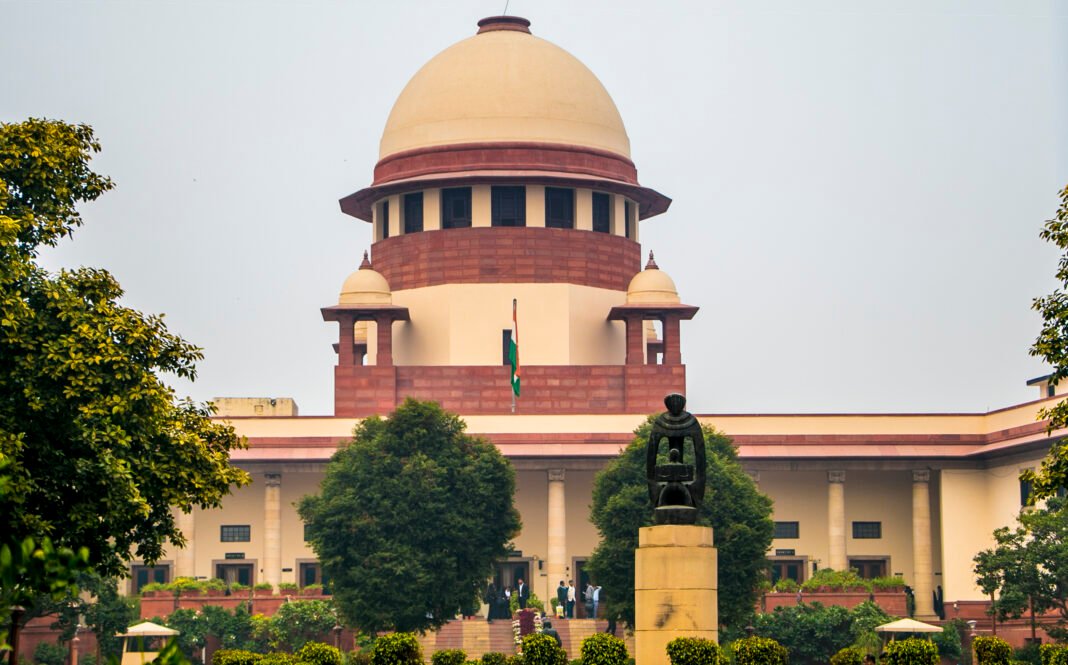The Supreme Court of India has intervened to stay a contentious order issued by the Allahabad High Court, which had controversially stated that actions such as “grabbing breasts and breaking pyjama strings” were insufficient to constitute charges of rape or attempted rape. The Supreme Court’s decision came during a hearing on Wednesday, where a bench comprising Justices BR Gavai and AG Masih expressed serious concerns regarding the “insensitivity” displayed by the High Court judge in handling the case.
The Supreme Court characterized the High Court’s observations as “not tenable in law” and indicative of a troubling lack of sensitivity towards the gravity of sexual offenses. The bench emphasized that the remarks made in paragraphs 24, 25, and 26 of the High Court’s ruling warranted immediate suspension. “We are sorry to use harsh language for the judge, but this is a serious matter, and the order was not made on a whim,” the bench stated.
The case in question involved two men, Pawan and Akash, who were accused of assaulting a minor girl. The allegations included grabbing the girl’s breasts, tearing her pyjama string, and attempting to drag her under a culvert while she was walking with her mother. Initially, the accused were charged under Section 376 of the Indian Penal Code (IPC), which pertains to rape, as well as relevant sections of the Protection of Children from Sexual Offences (POCSO) Act.
However, the Allahabad High Court ruled that the actions of the accused did not meet the legal definition of rape or attempted rape. Instead, the court determined that the charges should be downgraded to aggravated sexual assault, which is punishable under Section 354(B) of the IPC and Section 9(m) of the POCSO Act. The High Court’s ruling was based on the argument that an attempt to commit rape must exceed mere preparation and that actual attempts must demonstrate a greater degree of determination.
In its order, the High Court noted that while the specific allegation against one of the accused, Akash, involved attempting to drag the victim beneath a culvert and breaking her pyjama string, there was no evidence presented that the victim was left naked or undressed as a result of the accused’s actions. Furthermore, the court pointed out that there were no allegations of penetrative sexual assault against the victim, leading to its conclusion that the facts of the case did not constitute an attempt to commit rape.
The Supreme Court’s decision to stay the High Court’s ruling has been welcomed by many legal experts and advocates for women’s rights, who argue that the original order undermined the seriousness of sexual offenses and could set a dangerous precedent in the interpretation of laws designed to protect vulnerable individuals, particularly minors.
In light of the Supreme Court’s ruling, the bench has directed the registrar general to communicate the order to the Chief Justice of the Allahabad High Court and to take appropriate measures regarding the matter. The Supreme Court has also issued notices to the Union Government and the State of Uttar Pradesh, indicating that further legal scrutiny will be applied to the case.
This intervention by the Supreme Court highlights the ongoing challenges in the legal system regarding the treatment of sexual offenses and the need for a more nuanced understanding of consent and assault. As the case progresses, it is expected to draw significant attention from legal scholars, activists, and the public, as it raises critical questions about the protection of minors and the interpretation of laws related to sexual violence in India.
The Supreme Court’s decision serves as a reminder of the importance of sensitivity and awareness in judicial proceedings, particularly in cases involving sexual offenses, where the implications for victims can be profound and lasting. As the legal discourse continues, the focus will remain on ensuring justice for victims and upholding the integrity of laws designed to protect the most vulnerable members of society.








